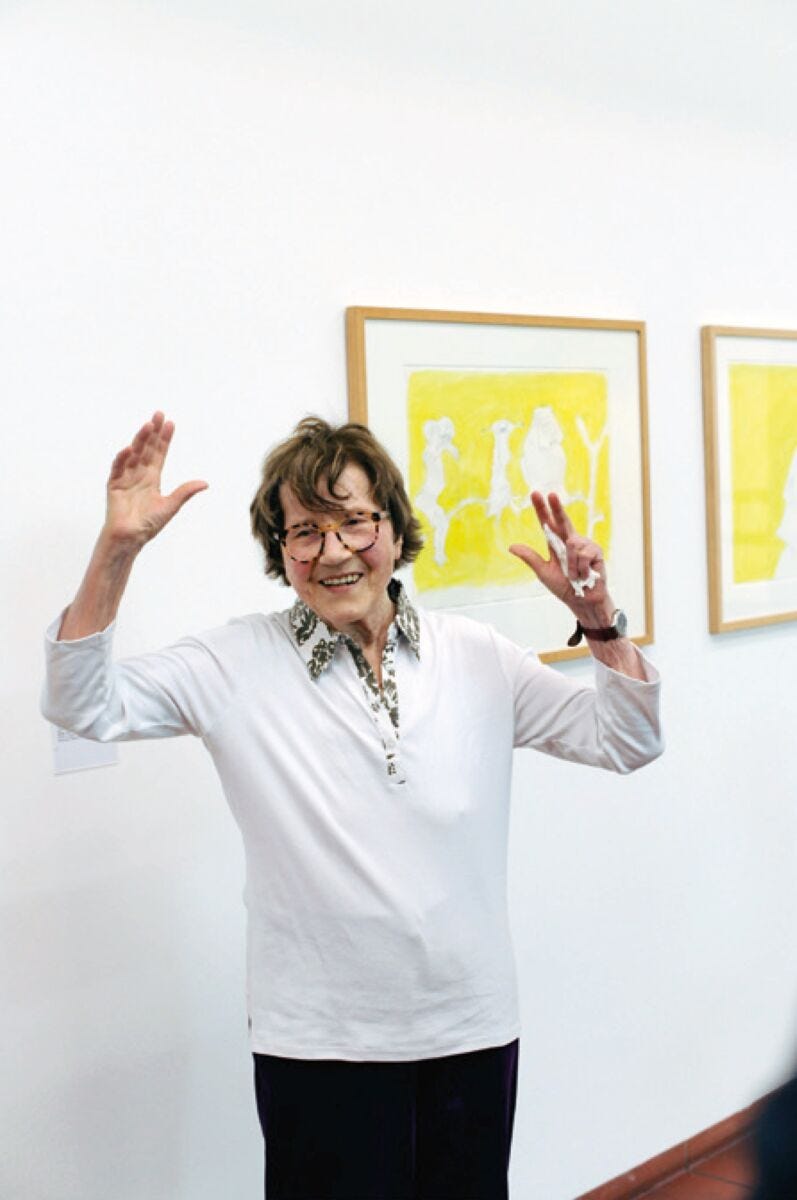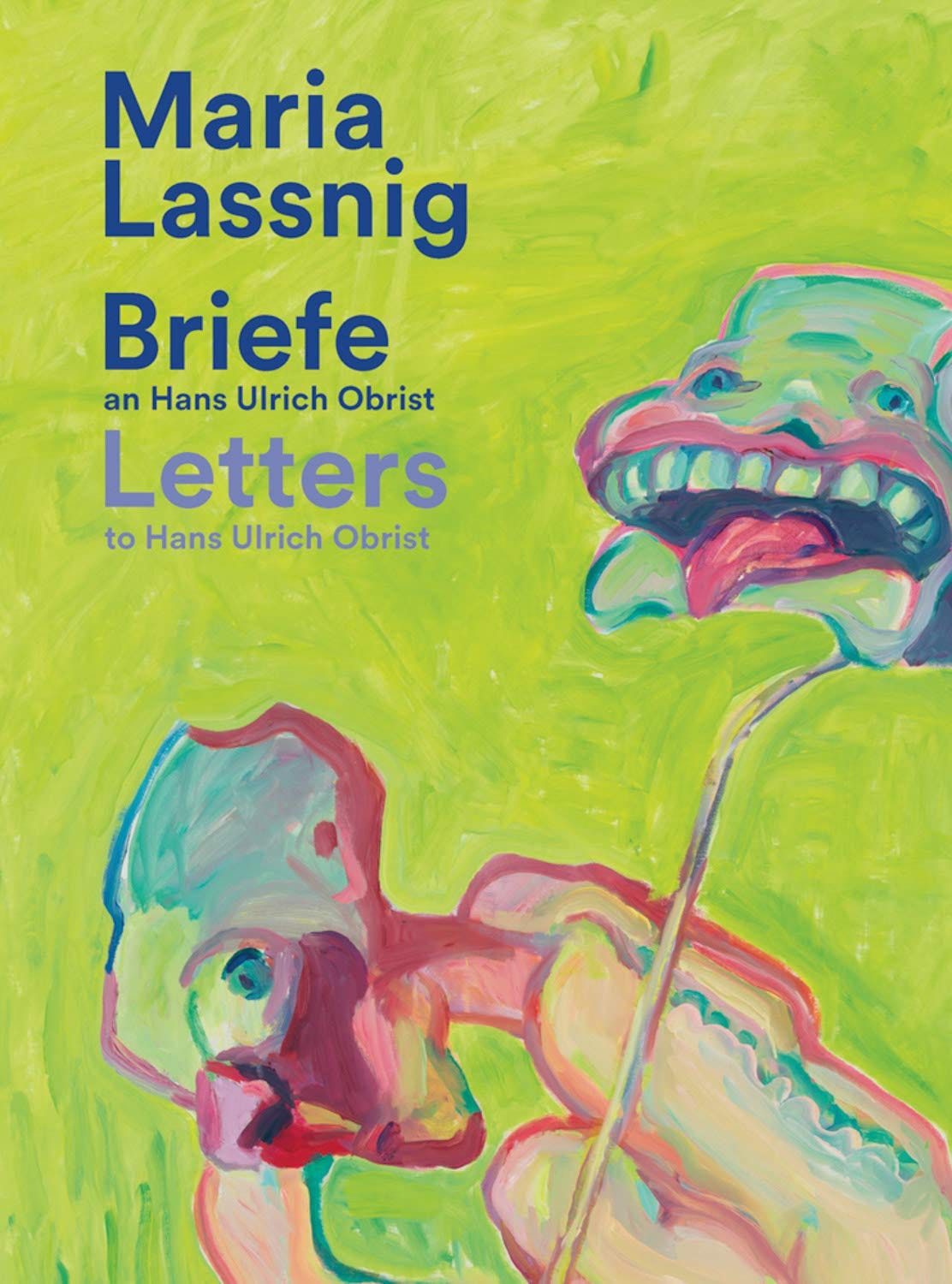Hi, everyone! Yesterday was my birthday, and instead of writing a newsletter over the weekend I decided to follow Van Gogh’s advice and enjoy myself as much as I could. So in lieu of a new issue here’s one from the archive, a favorite of mine that I first sent in November 2020 and that I believe will be new to many of you.
Remember: Paid subscribers get access to the full archive of 120+ back issues, plus my sincere gratitude for your support!
Maria Lassnig (1919–2014)
Last month, I received a recent book of letters from the late Austrian artist Maria Lassnig to the Swiss curator Hans Ulrich Obrist. The pair met in 1985, when Obrist was a precocious 17-year-old who would take the night train from Zurich to Vienna to visit the city’s artists in their studios. Years later, Obrist co-organized a group exhibition that featured Lassnig’s work, and the two struck up a correspondence that lasted two decades. Obrist’s letters have been lost, but Lassnig’s are reproduced here alongside transcripts in German and English.
Like so many artists’ letters, Lassnig’s are not exactly a meditation on the beauty of creativity or the steady forward progress of her work; rather, the dominant notes are self-questioning and self-doubt. As Obrist writes in the book’s introduction, “In Lassnig’s letters there is still always an undertone of dissatisfaction, not one that tormented her, not a moody kind of weariness, but as a constantly recurring reflection on her art, its self-contradictory and imponderable facets.”
There are also some beautiful and lyrical moments, like when Lassnig describes her country house in southern Austria: “It is tremendously quiet, only bees and occasionally cow bells within earshot, nothing but forest and good smells.” Perhaps the book’s most resonant phrase is one of its last, from an unfinished letter found on Lassnig’s desk at the time of her death. “Dear Hans Ulrich Obrist,” she begins. “Living with art stops one wilting!”

But my very favorite passage may be this one from November 2005, in which Lassnig, then 86, addresses the realities of aging:




